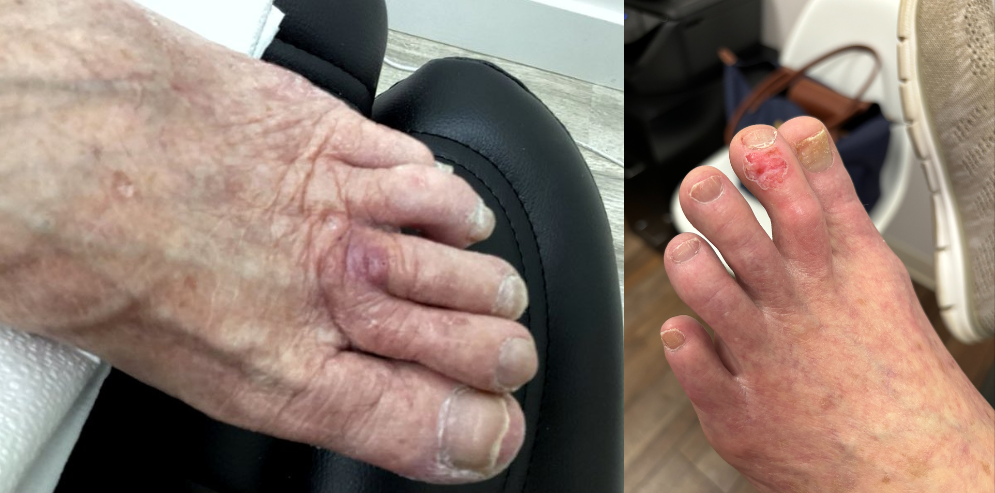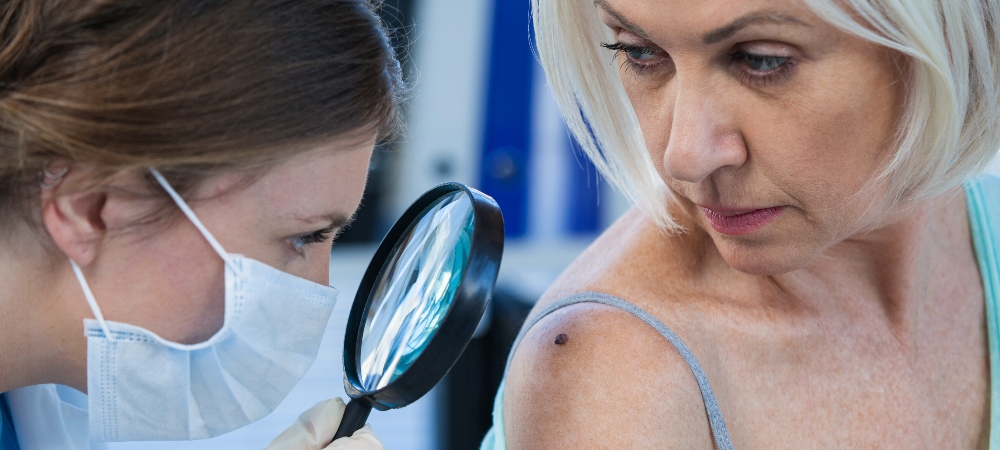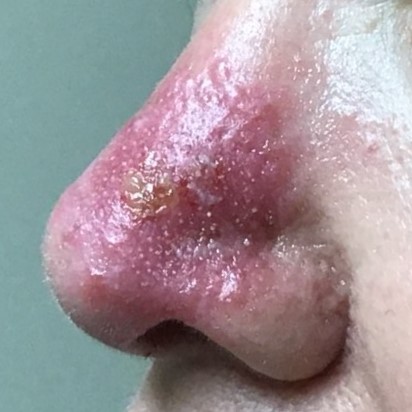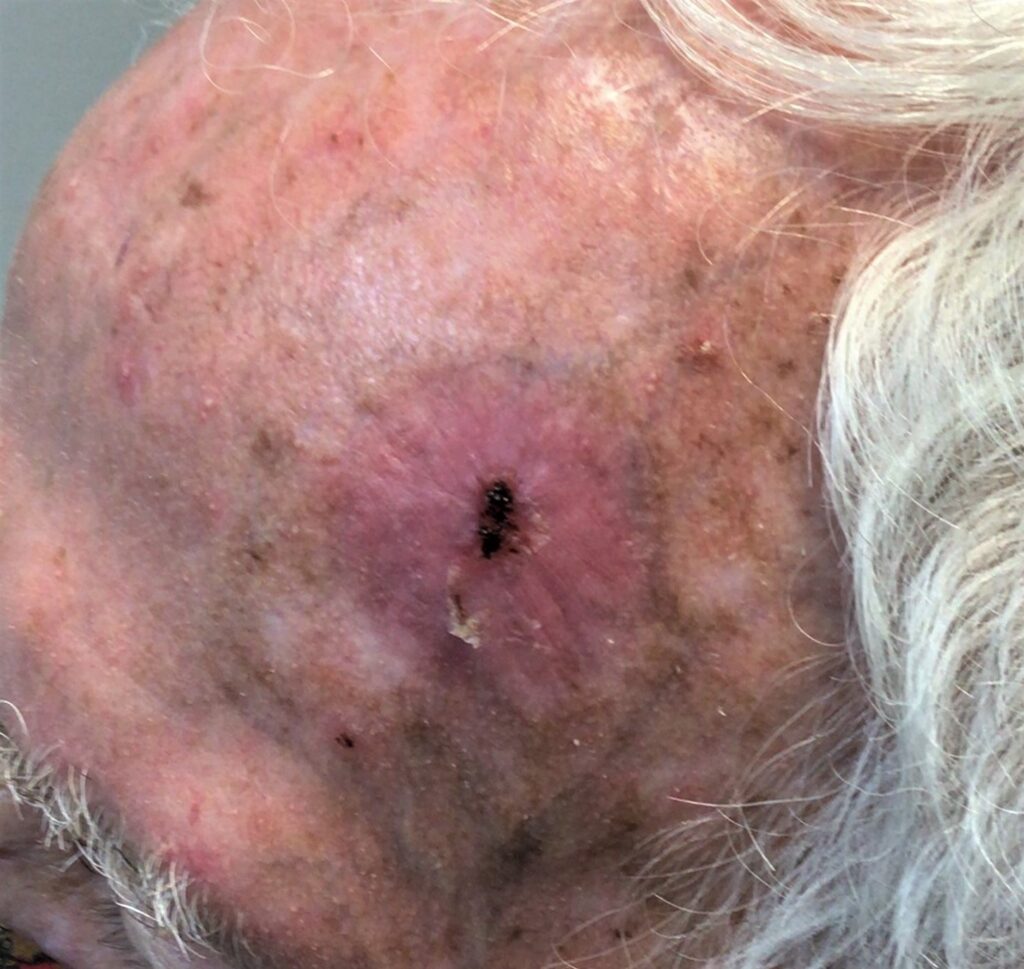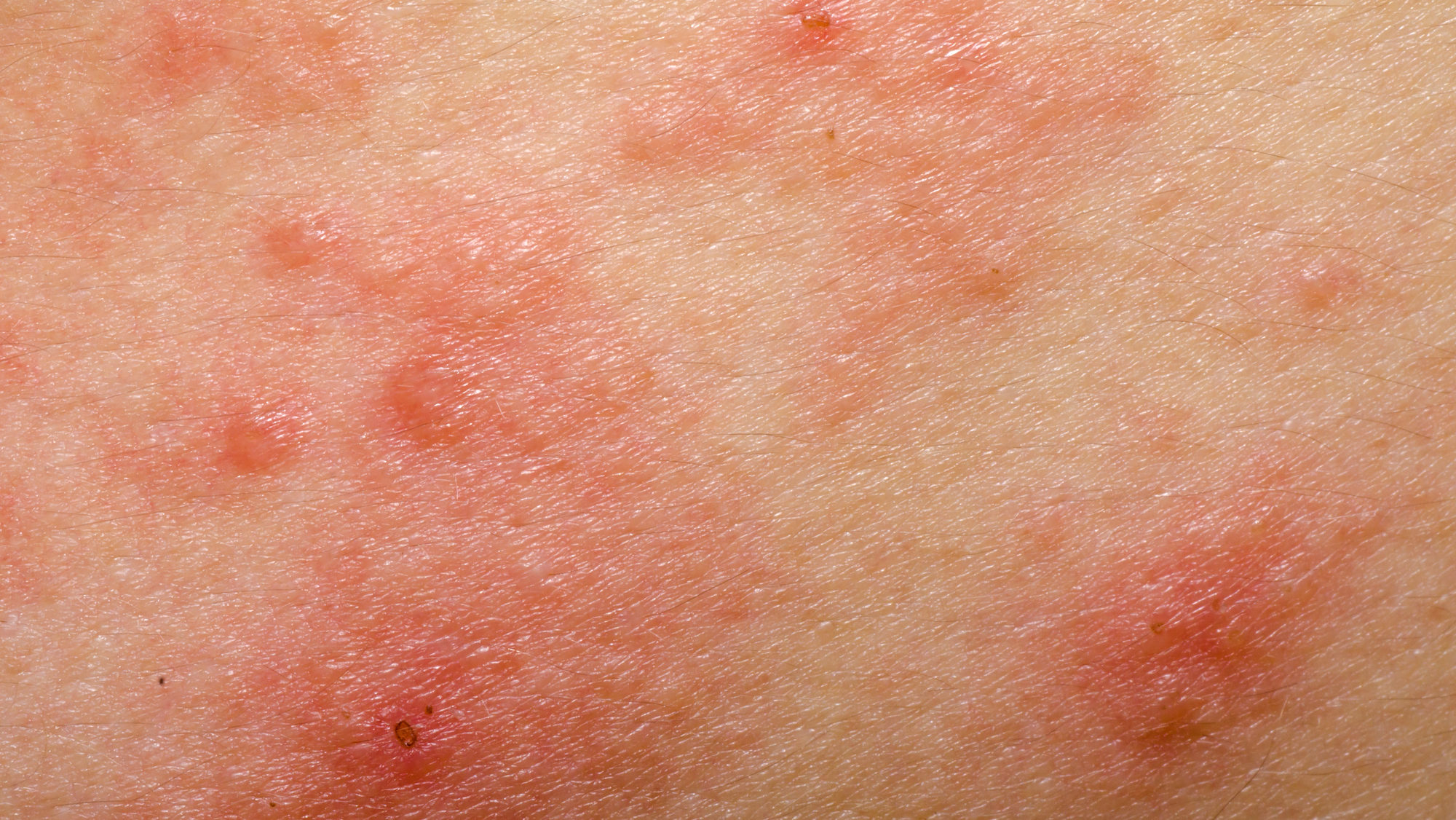
Is the red patch on your skin a sign of eczema or skin cancer? Although experts have no trouble distinguishing the two skin conditions, the fact that both can occasionally present as red and scaly patches means that closer examination is always a good idea. Before you jump to conclusions, learn about the common types of skin cancer that look like eczema and find out how to distinguish eczema vs. skin cancer in practice.
What Type of Skin Cancer is Like Eczema?
Different types of skin cancers appear very different from one another, so it’s important to be familiar with the various types. Of all the skin cancers that could look like eczema, the most common are squamous cell skin cancer and basal cell skin cancer. Neither type of cancer will always present as a reddish, scaly patch that resembles a rash but either could present in this way. That’s why vigilance is so important.
Squamous cell skin cancer is less aggressive than melanoma, but more likely to spread than basal cell skin cancer. Early detection and treatment improves outcomes for all types of skin cancer, so don’t hesitate to schedule a screening with your dermatologist.
Eczema or Skin Cancer: How to Tell the Difference
So, is your new skin lesion eczema or skin cancer? Although it’s always advisable to have new skin growths checked out by a dermatologist, the following visual and physical cues can help you make an educated guess:
- Squamous cell skin cancer and basal cell skin cancer may appear as one isolated lesion or red patch. These diseases might look like eczema, but the latter is generally found in multiple locations, all over the body. If you have many different skin lesions of this type, it’s probably eczema.
- Eczema can develop at any time in your life, and common skin cancers can do the same. However, eczema is more common in babies and young children, whereas skin cancer becomes more common with age. If you’ve never experienced eczema in the past, your scaly red patch may be cancer. Schedule a screening right away.
- Eczema may appear near your hands, neck, elbows, ankles, feet, or eyes. Skin cancer, on the other hand, almost always appears in the areas of the body that are most exposed to sunlight. While location alone will not rule out either diagnosis, it’s smart to keep this difference in mind.
Eczema or Psoriasis?
Distinguishing eczema from psoriasis can also be helpful when you are working toward a diagnosis. While both types of non-cancerous skin conditions may present as red, scaly patches of skin, eczema is more likely to present with brown-gray coloration, uneven borders, and pustules.
You Have Options for Common Skin Cancer Treatment
If you’ve received a diagnosis of basal cell skin cancer or squamous cell skin cancer, you may be able to treat the condition without surgery and without a risk of surgical scarring. Ask your doctor to find out if Image-Guided Superficial Radiotherapy is right for you. While you’re here, find out how it works.

